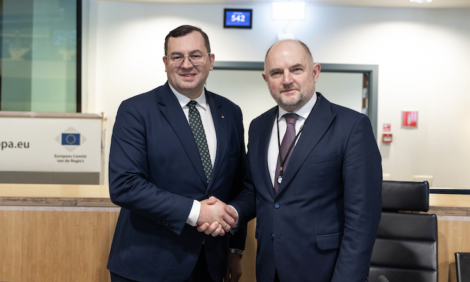



Weekly Overview: Meeting Aims for More Responsible Use of Antibiotics
ANALYSIS - In the last week came a report on a high-level meeting discussing the responsible use of antibiotics. Participants agreed on the principles of replacing, reducing and refining the use of these drugs for farm animals and the need to communicate to consumers what the animal protein sector is doing to address the issue. Russia and the European Union have clashed at the WTO over African swine fever, while new outbreaks have been reported in the last week in Latvia and Poland as well as Russia. PED rumbles on in the US and Japan.A framework for replacement, reduction and refinement needs to be established for the responsible use of antimicrobials along the supply chain. Furthermore, the measures that should be implemented by vets, farmers, producers, retailers and the pharmaceutical industry need to be communicated to consumers.
These are the main findings of a recent top-level roundtable, Antimicrobials – Who Needs Them?, chaired by the Food Animal Initiative (FAI) together with the pharmaceutical company, Ceva.
The roundtable agreed a path establishing new and standardised measures for antibiotic use that can be implemented at producer level and that can also make changes in the way antibiotics are used at both national and regional level.
Concern is rising over the spread of African swine fever in Europe as new cases this month have been found in wild boar in both Poland and Latvia.
At the same time, the disease is continuing to spread in Russia with new cases reported by the country's veterinary authority, Rosselkhoznador, in domestic pigs in Voronezh, Smolensk and Pskov and in wild boar in Pskov and Novgorod.
Traces of the virus have been discovered recently in meat samples at a processing plant in Velikoluksky.
At a recent meeting of the animal health committee of the World Trade Organization (WTO), Russian representatives kept up the pressure on the EU, saying that Europe had repeatedly failed to heed the warnings from Russia and Belarus over the spread of the disease.
European Commission told the committee that the EU had complete and effective control measures in place and accused Russia for the spread of the disease in Russia and Belarus.
Last week, the veterinary authority in Poland reported that six more wild boar had tested positive for the African swine fever virus being found dead in Podlaskie, the same region as previous cases.
And finally, on porcine epidemic diarrhoea, the number of virus-positive farm samples in the United States has risen to 7,719 in the most recent report, with 15 states affected. No outbreaks have been reported in Canada since mid-June.
The disease is still spreading in Japan, however, where the loss of more than 340,000 pigs from the disease since October 2013 is reported to be behind rising domestic pork prices and increasing imports, even from the US.






